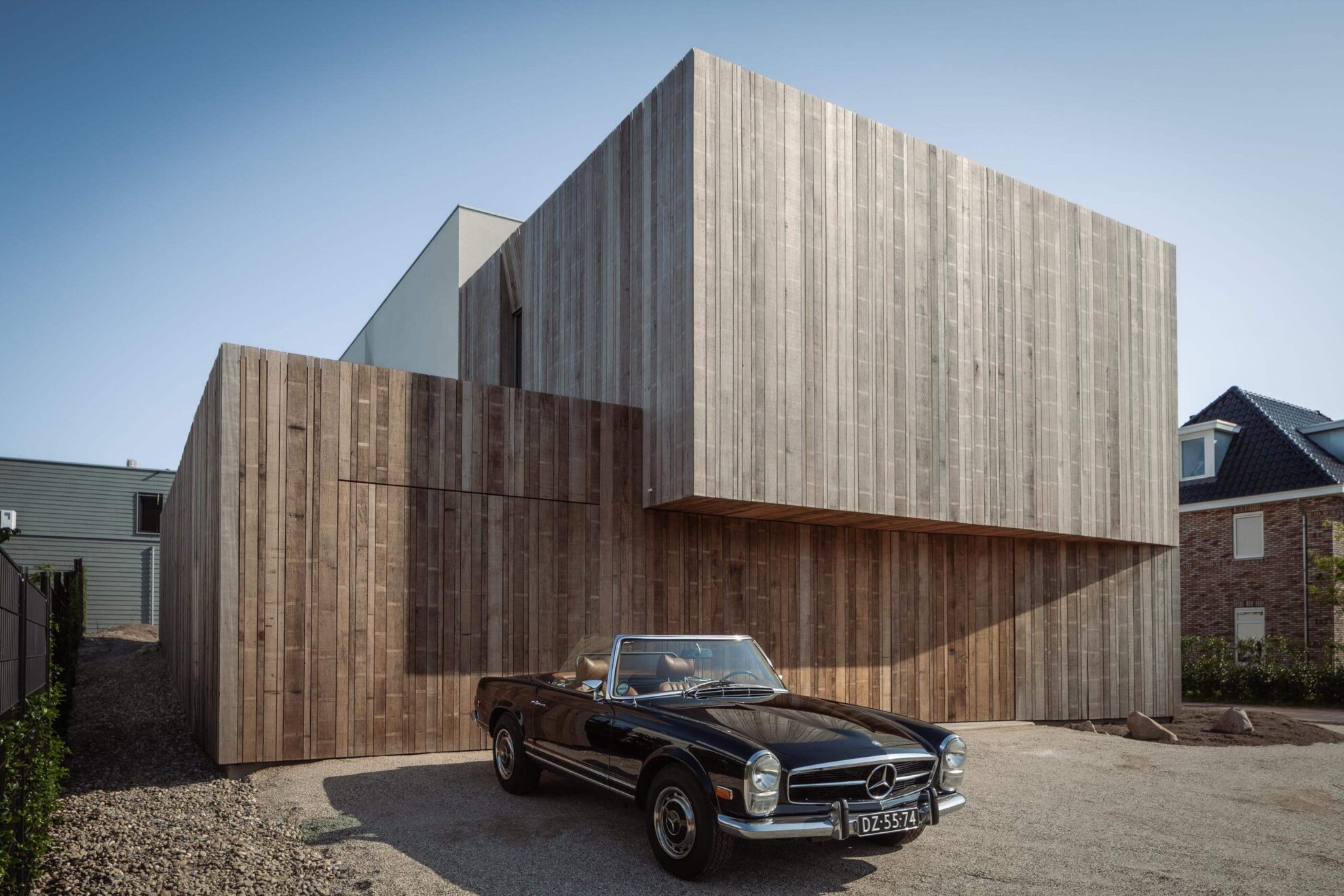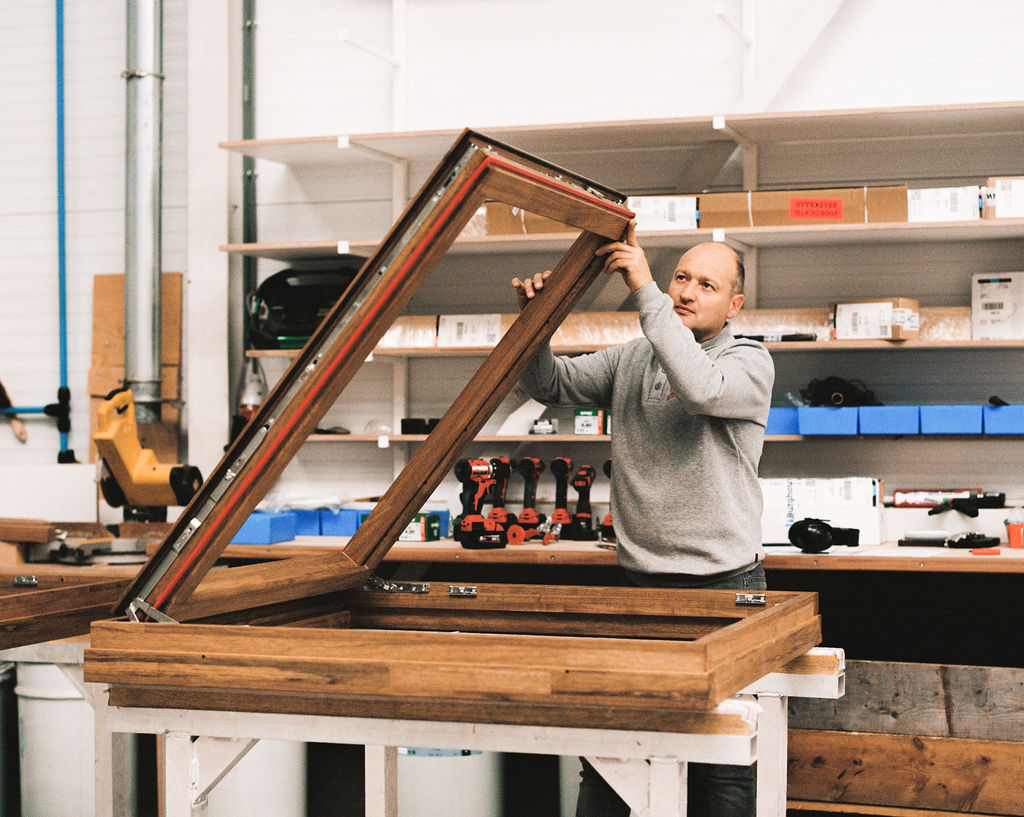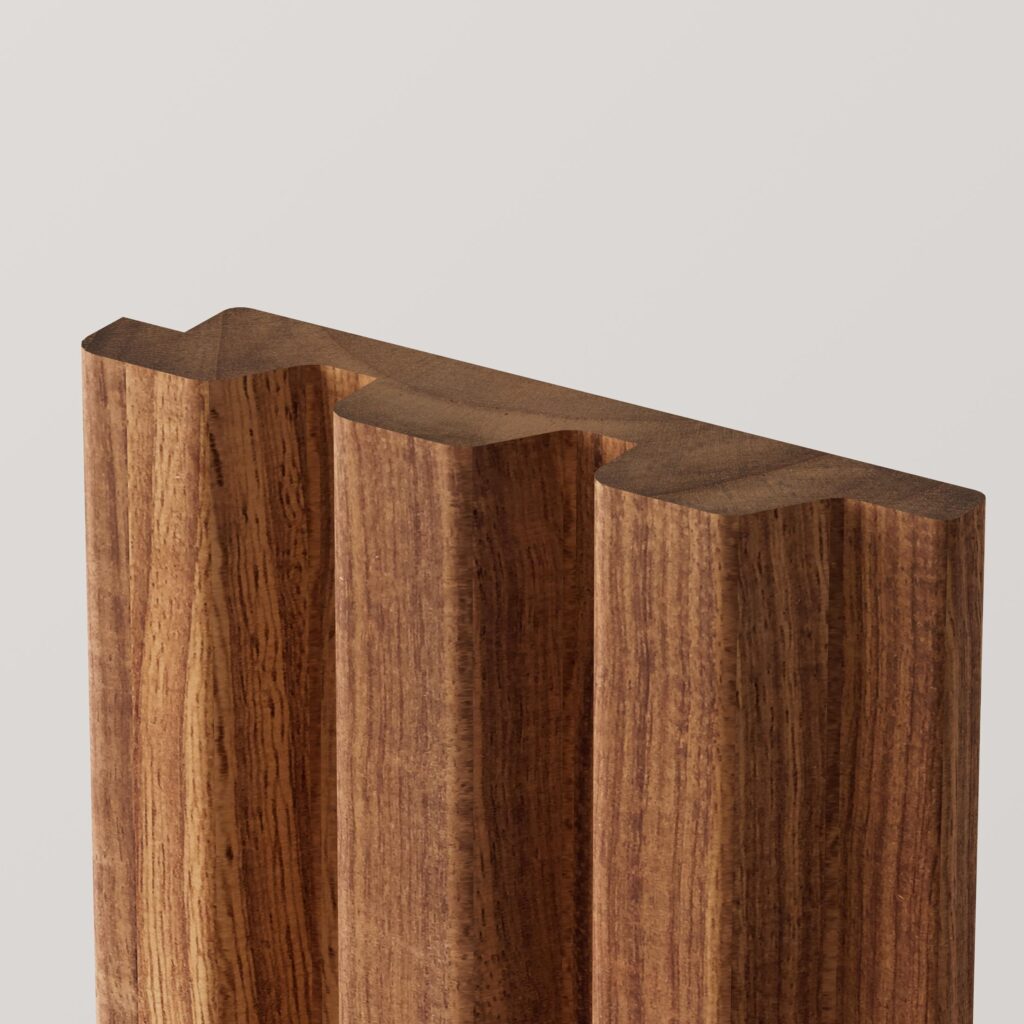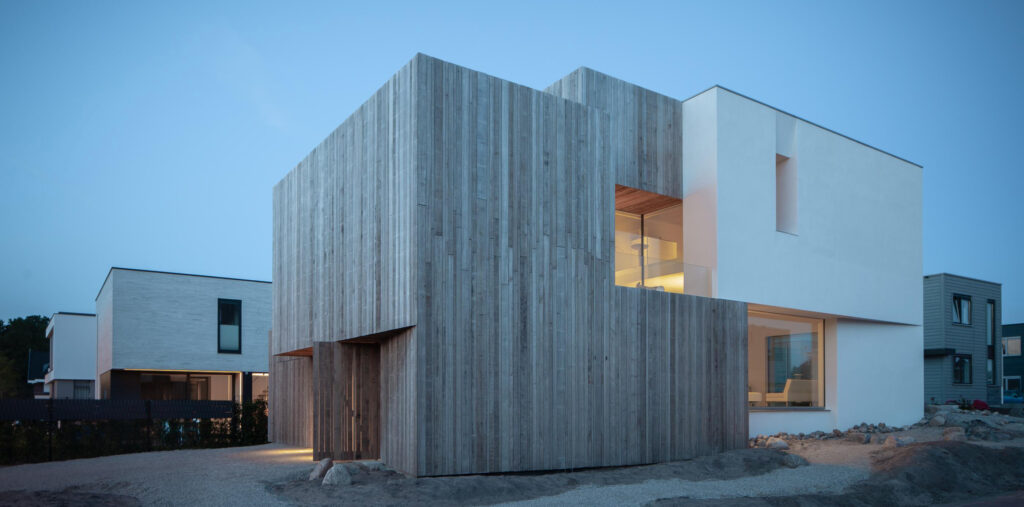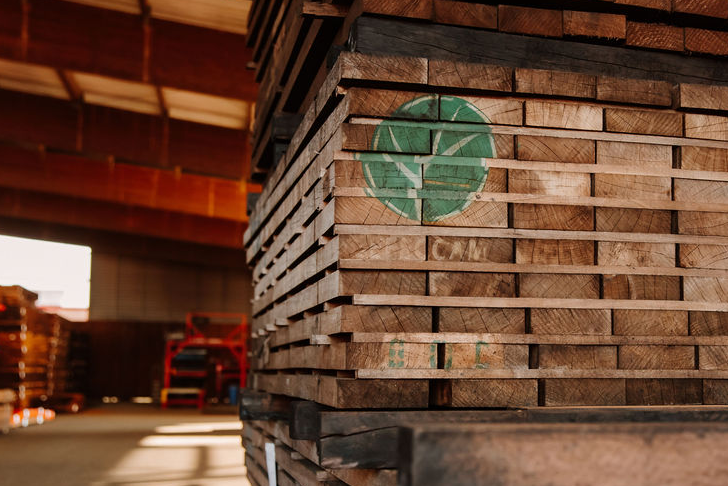Through the platowood process, the subtle flame-like pattern characteristic of fraké is accentuated. Platowood Fraké is a sustainable wood species with a warm and stylish appearance. The chalk lines and pinholes that may occur give the wood a distinctive look.
Platowood Fraké is strong, dimensionally stable wood and suitable for various applications. Among others for façade cladding, frames, windows and doors, and decking.
Platowood Fraké has durability class 1-2. As standard, it meets Euro fire class D. With our 100% natural fire-retardant treatment, Euro fire class B can be achieved.
